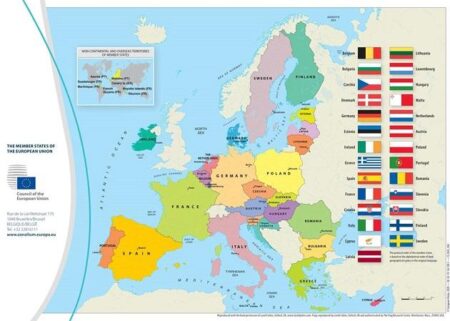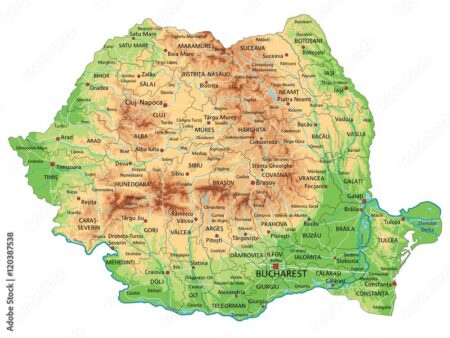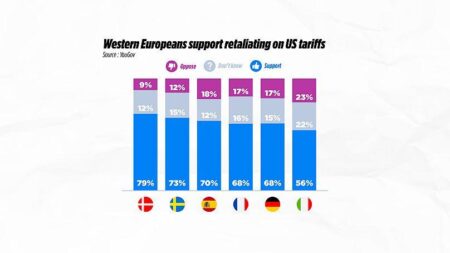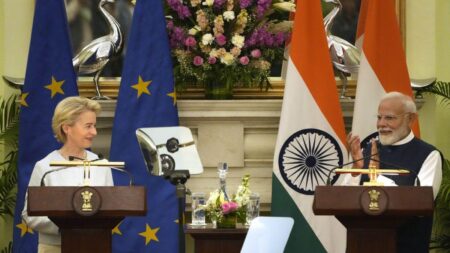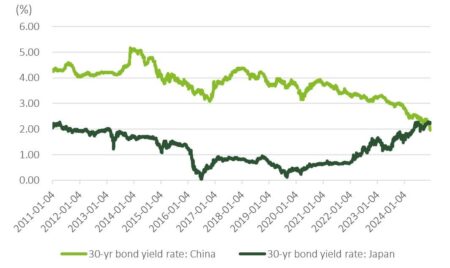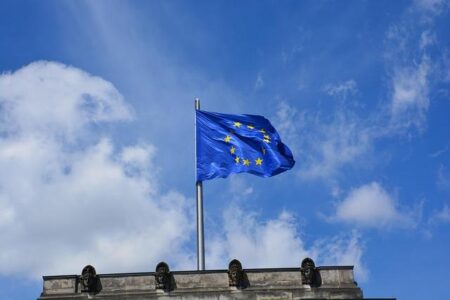Spain’s Prime Minister Pedro Sanchez urged the European Union to reevaluate its relationship with China, emphasizing the need for a more unified approach in addressing economic and geopolitical challenges posed by Beijing.
Browsing: EU
In response to rising global trade tensions, EU countries are implementing protective tariffs to shield domestic industries. This move aims to bolster competitiveness and safeguard jobs, signaling a shift towards more aggressive trade defense strategies.
Romania has officially joined an EU-backed nuclear energy initiative alongside France and Italy. This collaboration aims to enhance energy security and promote sustainable development in the region, marking a significant step for Romania’s energy strategy.
Egypt has secured funding from France and the European Union to advance its infrastructure development projects. This collaborative investment is aimed at enhancing transport, energy, and water systems, fostering economic growth and regional ties.
Germany’s Chancellor Olaf Scholz has announced the EU’s readiness to respond to potential U.S. trade tariffs, emphasizing the bloc’s commitment to uphold fair trade practices. The statement signals a unified approach to address transatlantic trade tensions.
France has identified digital services as a key target in the EU’s tariff response to U.S. trade policies. This move reflects rising tensions over tax structures and digital market regulations, signaling a strategic shift in Europe’s trade negotiations.
The EU and India are on the brink of finalizing a pivotal free trade agreement aimed at boosting economic ties and enhancing trade in goods and services. This partnership could reshape global trade dynamics, fostering growth and innovation in both regions.
China’s economy tsar has extended an invitation to the EU’s trade chief to collaborate in countering rising tariff threats. This move underscores the growing concern over trade tensions and the importance of strengthening economic ties between the two regions.
France has put forward proposals to reform the European Union’s carbon market, aiming to enhance stability and drive more effective emissions reductions. The changes seek to address market volatility and ensure a more predictable framework for businesses.
The escalating conflict in Ukraine and the EU’s push for rearmament have intensified divisions within the Italian government. While some factions advocate for increased military support, others fear it could destabilize Italy’s diplomatic posture and economic priorities.
Germany’s recent surge in spending, aimed at bolstering its economy post-pandemic, is raising concerns within the EU. Critics warn that this financial splurge could disrupt budgetary stability across member states, triggering anxiety about fiscal discipline in the bloc.
France and Italy have stalled the European Union’s initiative to allocate ammunition for Ukraine, raising concerns over the bloc’s ability to respond to ongoing military needs. The delay highlights differences among member states regarding military support.
France and Italy have blocked a €5 billion EU ammunition fund intended for Ukraine, further complicating the EU’s larger €40 billion assistance plan. This stalling highlights ongoing tensions among member states regarding support for Ukraine amid the ongoing conflict.
Italy’s Prime Minister Giorgia Meloni has urged the European Union to consider the implications of a potential trade war with the United States. She also affirmed Italy’s decision not to send troops to Ukraine, highlighting the need for diplomatic solutions.
The EU has greenlighted Spain’s €700 million energy storage subsidy plan, aimed at enhancing renewable energy integration and security. This funding is expected to bolster Spain’s clean energy infrastructure and accelerate its transition to a sustainable energy future.
Italy and Spain have expressed reservations about the European Union’s proposal to enhance military support for Ukraine. Their hesitance underscores internal divisions within the bloc as it navigates its strategic response to the ongoing conflict.
Italy has proposed a new initiative within the EU aimed at enhancing defense capabilities without increasing national debt. The plan involves leveraging EU guarantees, seeking to bolster security amidst rising geopolitical tensions.
Italy and Spain have voiced support for France’s initiative aimed at revitalizing the EU chemicals industry. This collaborative effort seeks to address competitive challenges, enhance sustainability, and ensure the sector’s resilience in a rapidly evolving market.
The European Union has initiated legal action against Spain, accusing the country of implementing discriminatory tax policies that unfairly target non-residents. This move highlights ongoing tensions regarding tax equity within the bloc.
Germany’s Chancellor Olaf Scholz has welcomed the European Union’s response to newly imposed U.S. tariffs, viewing it as a unified stance that strengthens transatlantic relations. He emphasized the importance of solidarity among EU member states in addressing trade challenges.


